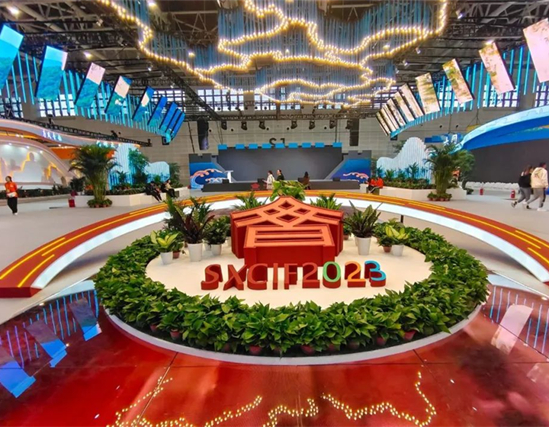Shanxi pilots large-scale biogas output project
Updated: 2019-04-18
North China's energy base -- Shanxi province -- piloted its first large-scale biogas production project in the local city of Yuanping on April 16, in a bid to achieve clean and efficient development and utilization of agricultural and rural waste.
Built with an investment of 140 million yuan ($20.91 million), each year the national-level project will convert many hectares of straw and livestock and poultry waste into an estimated 14 million cubic meters of methane, 7 million cu m of high-quality natural gas, more than 40,000 tons of high-efficiency organic fertilizer and 6 million cu m of gas fertilizer.
The project is expected to help reduce carbon emissions annually by 12,000 tons and dust by 9,000 tons, bring sales of 79 million yuan and profits of over 8 million yuan, and create jobs for more than 300 people per year.
Core processes of the project such as raw materials pretreatment, anaerobic fermentation, and control systems are being introduced from EnviTec Biogas AG, a world leading biogas company based in Germany.
The project will be carried out by Shanxi Shenmu New Energy Co, a wholly-owned subsidiary of Shanxi Energy Investment Biomass Energy Development and Utilization Co.
Going forward, the two sides will cooperate on building a biomass energy equipment manufacturing base in Shanxi Transformation and Comprehensive Reform Demonstration Zone, promoting biomass energy projects and developing industrial clusters of biomass energy R & D and utilization, as well as equipment manufacturing across Shanxi.
Industry experts say that biomass energy -- which is renewable, clean and low-carbon -- is a strategic emerging industry in China. It is of great value to agricultural and rural waste disposal, improving the environment, optimizing energy systems and the circular economy.
According to Wu Qiang, chairman of Shanxi Energy & Traffic Investment Co, the company plans to launch 21 similar biomass energy projects across the province in next three years with five to eight to start construction in 2019.
Once all are completed, the projects will be able to produce 300 million cu m of biomethane, 150 million cu m of natural gas and over 800,000 tons of organic fertilizer each year from 133,333 to 266,666 hectares of straw, 2-3 million tons of livestock and poultry waste -- reducing carbon emissions by 240,000 tons and dust by 180,000 tons annually.



